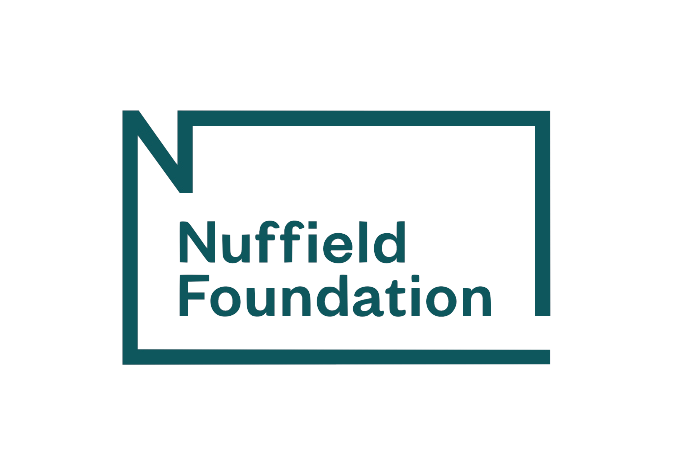Mental health of AIDS-orphaned children & Resilience Studies
Background
The majority of children in South Africa have never known a world without HIV/AIDS. There are an estimated 1.4 million AIDS-orphaned children in South Africa, and millions more who live with parents who are AIDS-sick. Previous research has reported that orphaned children are more likely to have mental health problems, educational deficits, and are more likely to contract HIV as adolescents. However, we lack evidence to show whether AIDS-orphans experience greater hardship than other-orphans and mechanism by which such negative experiences can be mitigated.
Aim
This study was the developing world’s first longitudinal study of AIDS-orphaned children. It investigated the mental health of children orphaned by AIDS and affected by AIDS, comparing them to children orphaned by other causes and affected by other chronic illnesses and those neither orphaned nor affected. Building on previous evidence showing major impact of orphanhood on child and adolescent mental health, this study aimed to investigate sexual health risks, mental health risks, physical health and educational risks. It focussed on why some children develop resilience and others do not, and why some engage in risky behaviours or experience mental and physical health risks compared to others.
Methodology
In 2005, 1025 children and youth were originally recruited in highly deprived urban isi-Xhosa-speaking neighbourhoods of Cape Town to investigate psychological distress amongst orphaned children. Sampling was purposive to include very vulnerable children and participants were recruited from 18 non-governmental organisations, nine schools, and through door-to door sampling within the community. In 2009, we followed up 723 of these youth aged 13-24 with a follow-up rate (71%), which has exceeded our expectations. The study included a longitudinal quantitative dataset on psychological, educational and sexual health outcomes, and a detailed qualitative study. Research tools were designed with our Teen Advisory Group (TAG team of 12 AIDS-affected children) on annual residential weekend camps. The TAG team designed teen magazine layout and specified the music stars featured. With the TAG Team, we developed an extra privacy mechanism for the pages addressing sexual risk behaviour, drug and alcohol use, behaviour problems and parental death or sickness. These were removed from the questionnaire, and stored in a sealed envelope with a privacy code. This helped improve participants’ willingness to complete these socially sensitive items.
Quantitative data collection of the follow-up was completed in December 2009. We decided to extend planned data collection time in order to increase the sample size (and therefore the value of the study as a follow-up and for analysis). Subsequently, data entry was completed, the old and new datasets were merged in SPSS v.19, detailed data cleaning was conducted, and we made follow-up visits to children where there were inconsistencies between Time 1 and Time 2 data. In 2010-11, the project moved into the qualitative stage of the study, which focused on resilience promoting factors as identified by the participants. Our TAG team strongly recommended that we focus on spiritual and religious coping, which they also identified as hardest to ask in a standardised format. We have conducted literature reviews, and have so far found no studies that examine religion or spirituality as coping mechanisms for children in HIV/AIDS-affected families. 150 AIDS-orphaned children recruited from secular and religious institutions were interviewed.
The Mental Health of AIDS-orphaned Children & Resilience studies were located in the Cape Flat areas in Cape Town in the Western Cape of South Africa.
Ethos
Ethical Protocols were passed by Oxford University, The University Of Cape Town, and the Western Cape Education Department. As anticipated, we had relatively high proportions of children reporting rape, physical, sexual and verbal abuse.
In line with procedures agreed with all Ethics committees, all current abuse was referred to social welfare services (excepting verbal abuse as services are too overwhelmed to address this). Children who reported rape in the past were sent letters with details of free helplines. Children who had been recently bereaved and were unable to access social grants were assisted by our Project Manager and PI.
Participants also received feedback letters on the findings of the previous study, and the impacts with National Government and NGOs.
Our local team worked incredibly hard, showing enormous initiative and tenacity in tracing children. We developed a range of capacity-building training for them, including CV building and training in research-valuable skills such as play therapy (below, with Dr Charlotte Ritchie visiting from Oxford Brookes) And child protection. We also introduced a ‘capacity-°©‐building fund’ of R500 for each team member, which could only be used for education or skills development. Two of our team are pursuing their Matric (A-Level) qualifications, two are taking driving lessons, one a part-time course in Social Work, One has enrolled for an undergraduate degree, and one for a PhD. We find that capacity-building has the added bonus of improving team cohesion, loyalty, and output.
Questionnaires
This study has employed internationally recognized scales and measures. The questionnaires can be accessed below:
Baseline Questionnaire: Xhosa Version English Version
Follow-up Questionnaire: Xhosa Version English Version
Current Status
This project has now been completed. The study has produced a number of key findings and outputs. You can read more about the project findings on our publications page.
Several key national and international policies have directly utilized the research findings, including the South African Development Community (SADC), Minimum Package of Services for Vulnerable Children, the South African National Action Plan for Children Infected and Affected by HIV/AIDS, the Lesotho Government Programme of Care for OVC, and the World Health Organisation Ethical Guidance notes for working with adolescents.
Funders
Research Team
Professor Lucie Cluver, Professor of Child and Family Social Work at the University of Oxford & Honorary Lecturer for the Department of Psychiatry & Mental Health at the University of Cape Town.
Professor Frances Gardner, Professor of Child and Family Psychology at University of Oxford
Professor Lawrence Aber, Professor of Applied Psychology and Public Policy at New York University
Dr Stephan Collishaw, Senior Lecturer at Cardiff University.


